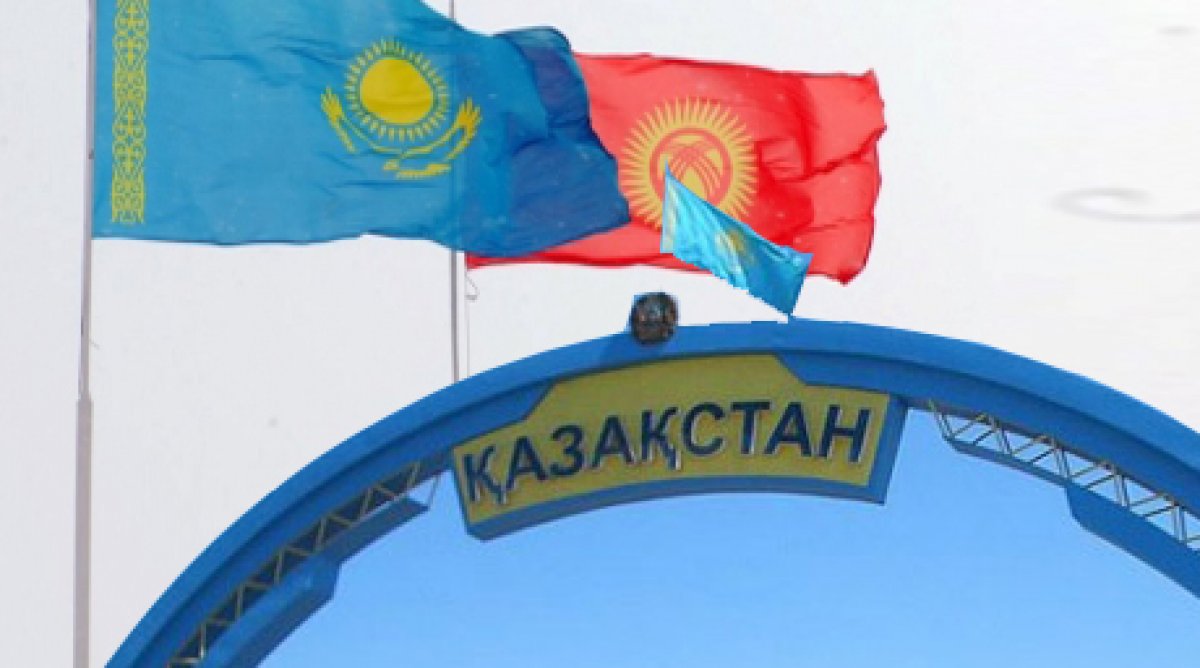 An escalating diplomatic and trade dispute between Kazakhstan and its smaller central Asian neighbour Kyrgyzstan is hurting companies as far away as London, and pressure is growing on Russia to step in and reconcile its allies.
An escalating diplomatic and trade dispute between Kazakhstan and its smaller central Asian neighbour Kyrgyzstan is hurting companies as far away as London, and pressure is growing on Russia to step in and reconcile its allies.
Shares in UK-listed miner Kaz Minerals, which has Kazakh shareholders, dropped more than three percent on Thursday after the Kyrgyz government briefly suspended operations at its gold and copper mine, in apparent retaliation for what Bishkek calls a border “blockade” imposed by Astana.
Truck drivers stuck on the Kyrgyz-Kazakh frontier say the bottleneck created by stringent checks on the Kazakh side is affecting companies in Russia, Belarus and Turkey.
The row erupted in September, when Kazakh President Nursultan Nazarbayev met a Kyrgyz opposition politician running for president in an Oct. 15 election.
The government of outgoing Kyrgyz President Almazbek Atambayev saw the meeting and comments made by Nazarbayev as meddling in its domestic affairs, and a series of angry exchanges ensued.
Kazakhstan upped the stakes in October by tightening controls at the border saying it wanted to protect its market from counterfeit goods. It also barred imports of dairy products made by several Kyrgyz firms, citing health and safety concerns.
BLOCKADE
The fight is lopsided: Kazakhstan’s population is three times as large as Kyrgyzstan’s and its economy 20 times bigger thanks to enormous oil and minerals wealth.
Landlocked Kyrgyzstan also does a large part of its trade through Kazakhstan.
Trucks that used to take up to a few hours to cross the border now have to wait for five to six days in queues stretching more than 10 km (six miles), drivers say.
A Reuters correspondent saw around 600 trucks in one queue at a checkpoint near the town of Kant this week.
“I have been delivering cargoes from Kyrgyzstan both to Moscow and to (Russia’s eastern region) Siberia and everything used to be fine, but now something terrible is happening,” said trucker Sardor Karimzhanov, who was moving Kyrgyz persimmons to the Russian city of Barnaul.
“I have been waiting in this queue for five days now and I have spent 11,000 som ($160) on fuel and 3,000 som on food.”
Another driver said his cargo, pickled peppers, belonged to a Turkish company with operations in Kyrgyzstan.
Kyrgyzstan’s emergencies ministry has set up a field kitchen near the checkpoint, giving drivers one meal of plov, a rice dish, a day.
MOSCOW AS ARBITER
After lashing out repeatedly at the Kazakh government, Atambayev this month said Bishkek had had “excessive expectations” of the Russia-led Eurasian Economic Union (EEU), a post-Soviet economic bloc to which both Kyrgyzstan and Kazakhstan belong.
Although he stopped short of threatening to quit, Atambayev said Bishkek would have to rely more on other markets including its even bigger neighbour China.
His subordinates have said they expect Moscow to intervene.
Daniyar Imanaliyev, deputy economy minister, said Bishkek wanted the main executive body of the EEU to act urgently on the matter.
“Matters concerning the basic principles of the union’s functioning must be resolved within days,” he said.
At a heads-of-government meeting of ex-Soviet nations in Uzbekistan on Friday, Kyrgyz Prime Minister Sapar Isakov said in the presence of his Kazakh and Russian counterparts that Astana’s actions went against both EEU and WTO rules.
After Kazakh prime minister Bakytzhan Sagintayev flatly dismissed those charges as “incorrect”, Russia’s Dmitry Medvedev said:
“Let us hope that opportunities arise to resolve this problem.”
Additional reporting by Mukhammadsharif Mamatkulov in Tashkent; Writing by Olzhas Auyezov; Editing by Andrew Heavens
KANT, Kyrgyzstan (Reuters), 04.11.2017




